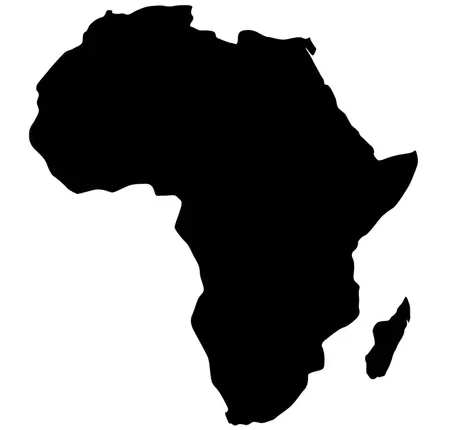According to the United Nations, Africa currently stands as the second most populous continent in the world, with 1,414,776,744 as of Tuesday, October 25, 2022. This figure represents 16.72 percent of the world’s population, which stood at 7,983,516,853 people at the time of this report.
The continent’s population is growing at over 2.45 percent since 2000 and peaked at 2.59 percent between 2012 and 2013. In contrast, Asia’s and Europe’s population is growing at a slow rate of 0.83 percent and 0.11 percent, respectively.
The United Nations International Children’s Emergency Fund (UNICEF) has projected that Africa might witness the birth of two billion babies in just 33 years. This means by 2050, Africa would double its current population of over 1.4 billion to 2.8 billion.
A UN report has also predicted that Nigeria, Africa’s most populous nation, could become the third largest population in the world exceeding the United States.
Africa has four countries with populations of 100 million or more: 214 million in Nigeria; 108 million in Ethiopia; 104 million in Egypt; and 101.8 million in the Democratic Republic of Congo. A 2020 report stated that Africa had 755.92 (56.4%) million people within the ages of 24 and below; while 533.5 (39.8%) million are under the age of 15.
Why it matters
This population boom could either position Africa as one of the most dominant continents on the globe or cause a population crisis in the region. Some implications of Africa’s population rise include increase in GDP and GDP per Capita, potential rise in the numbers of billionaires and millionaires, increase in political influence of African nations amongst the international community, etc.
The good scenario
On the one hand, Africa could see an increase in its workforce, higher economic growth, an improvement in the demographic structure of society and many more.
- The economic advantages of population boom as well as the rise in talents have attracted investors from all over the globe, causing Africa to earn the top five spots of the fastest growing economies in the world as of 2019.
- China even recently outplaced the US as the world’s largest foreign direct investor in Africa.
- From 1950 to 2020, Africa leads the percentage growth in the working age population (15 – 64).
The bad scenario
Most of Africa’s economies are fragile. This implies that most African economies cannot withstand significant events, such as a war or the outbreak of a disease. The pandemic of 2020 has proven this to be true.
- Also, unique factors such as corruption, unemployment, environmental degradation and low per capita income could negatively impact the continent.
The big picture
The United Nations has in a report announced that the world’s population has climbed to eight billion people on Tuesday. This means about one billion people have been added to the global population in a little over one decade – 12 years.
- According to the UN report, Middle-income countries, especially in Asia, contributed a significant amount to the growth in the last decade, with about 700 million people since 2011. India alone added 180 million people, and is on track to surpass China as the world’s most populous nation in 2023.
- Experts have pointed out that the growing global population puts more pressure on nature, as there is a competition with wildlife for water, food and space. Whether it’s food or water, batteries or gasoline, there will be less to go around as the world’s population rises. With this concern in mind, there is a need for policymakers to make a major shift in consumption patterns.

